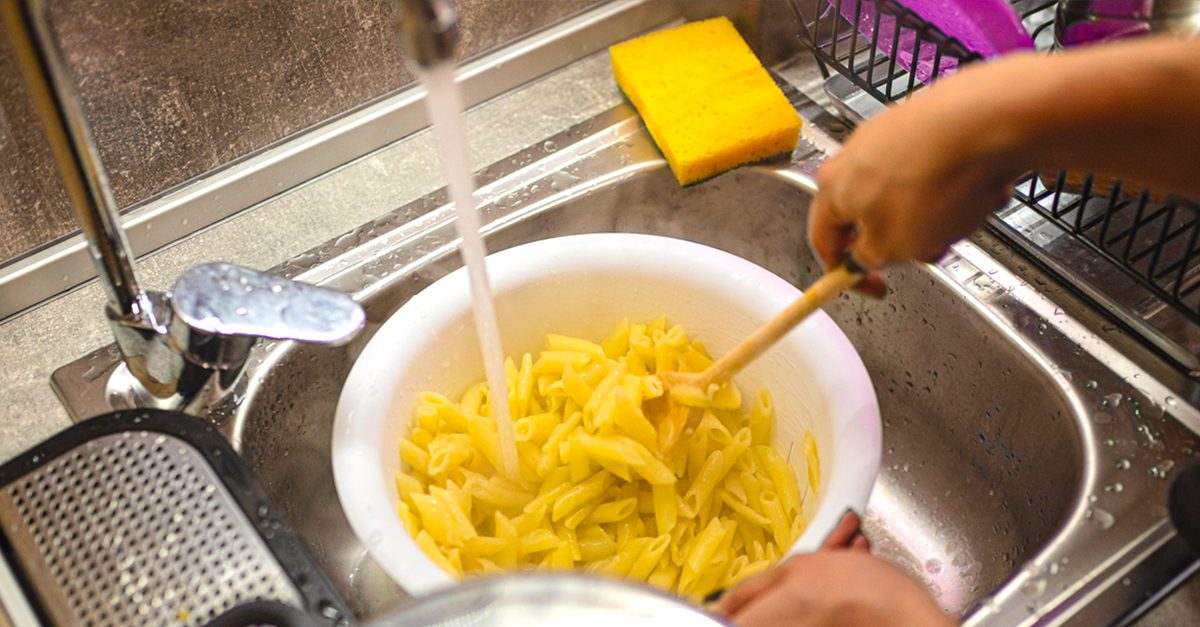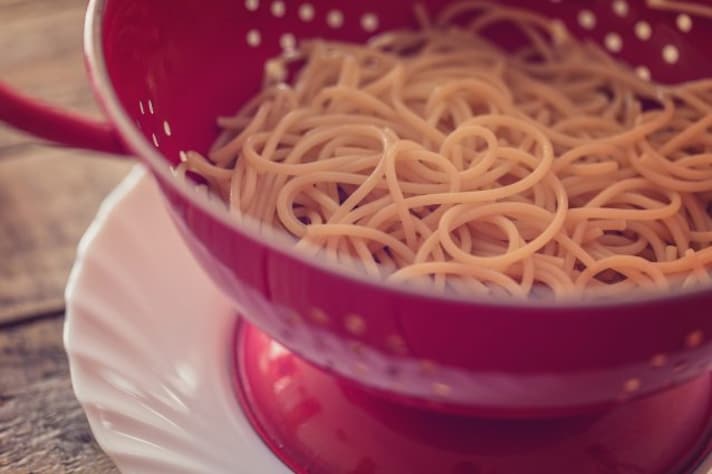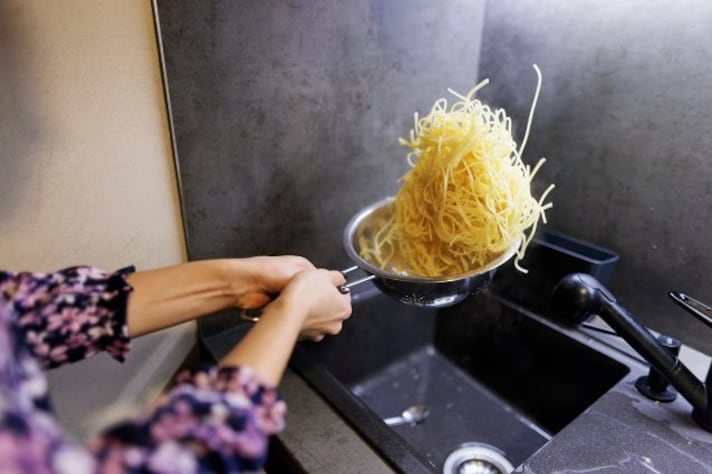Why You Should Never Rinse Pasta After Cooking It (And the One Time You Should)
Rinsing pasta after cooking removes valuable starch that helps sauce cling to it, diminishes flavor, and cools the pasta, reducing sauce absorption. It also washes away some nutrients and eliminates starchy pasta water needed for many recipes, leading to slippery noodles and less cohesive dishes, in general.
;Resize,width=742;)
Cooking pasta is one of the most straightforward things out there: you bring a pot of water to a boil, you put the pasta in it, you drain it, and then you add it to the sauce. Wait… what do you mean you rinse it once you’ve drained it? Why are you doing that? Stop immediately! Here's why rinsing pasta after it's been cooked isn't good for your dish.
The Importance of Starch
When you cook pasta, it releases starch into the boiling water. This starch is a key component in creating a delicious, cohesive pasta dish. When you rinse your pasta, you wash away this valuable starch, which helps the sauce cling to the noodles. Without this natural adhesive, your pasta can end up slippery and unappetizing, with the sauce sliding right off instead of coating each strand or shape beautifully.

You're Rinsing Away Flavor and Cohesiveness
Rinsing pasta not only removes the starch but also washes away some of the pasta's flavor. Think of pasta water as a flavor booster; when you rinse, you dilute and wash away this essence. Moreover, rinsing pasta with cold water immediately cools it down, which is counterproductive when you're aiming to serve a hot meal. The cooling effect means your pasta won't absorb the sauce as effectively, leading to a less flavorful and less cohesive dish.
The Disadvantages of Rinsing Pasta
The downsides of rinsing pasta don't stop at flavor and texture. Rinsing can also affect the nutritional content of your dish. Some vitamins and minerals in pasta are water-soluble, and rinsing can wash away these nutrients. Additionally, if you’re following a recipe that calls for pasta water, like many authentic Italian dishes, rinsing eliminates this essential ingredient. The starchy pasta water is often used to adjust the consistency of the sauce and to help it bind better to the pasta.

The One Time You Should Rinse Pasta
Now, before you swear off rinsing pasta forever, there is one exception to the rule: when you’re making a cold pasta salad. In this case, rinsing is beneficial because it stops the cooking process immediately and cools the pasta down quickly, preventing it from becoming overcooked and mushy. Rinsing also helps to remove some of the starch, which is less desirable in a cold dish as it can make the pasta clump together.
;Resize,width=767;)


;Resize,width=712;)
